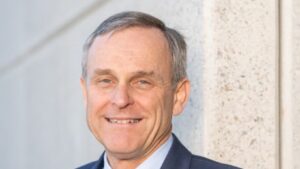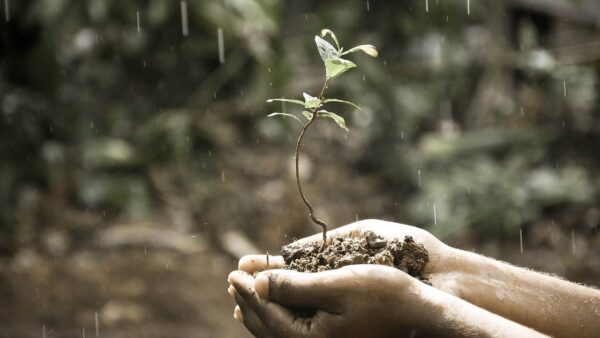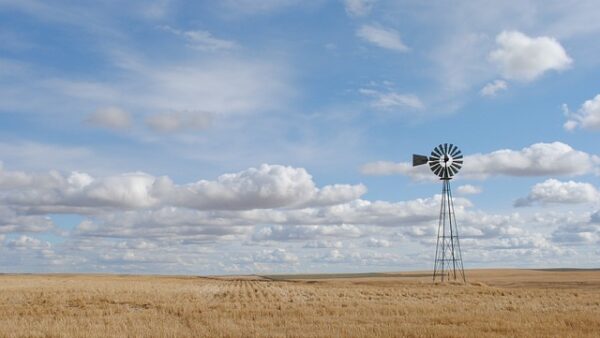In a global environment that seems to be changing at an unprecedented pace, leaders question if the traditional tactics used to meet the mission of the International Seed Federation are enough.
_x000D_
In June, Britain voted to leave the European Union. In November, Donald Trump won the U.S. Presidency, of which Russia is blamed for interfering with the election. In January, the United States withdrew from the Trans-Pacific Partnership, which could now be resurrected as Japan and Australia are in talks to possibly bring everyone back to the table, sans the U.S. This doesn’t include the half dozen other geopolitical actions that made the headlines in 2016: Brazil and South Korea impeached their presidents, the fall of Eastern Aleppo and the fail of the military coup in Turkey._x000D_
_x000D_
Couple those events with the changing communication technologies, such as the immediacy and reach of Twitter, and how policymakers are influenced by public opinion as to how they make decisions. This all creates a great deal of uncertainty, says Jean-Cristophe (JC) Gouache, International Seed Federation (ISF) president._x000D_
_x000D_
Additionally, Gouache who is in the first of a two-year term as president notes the science is moving very fast and there’s increasing concentration and consolidation._x000D_
_x000D_
“What is the role of ISF in such a fast-changing world, and how do those changes impact the seed industry?” Gouache asks. “As the world transforms, so must we in our approach to be effective.”_x000D_
_x000D_
Gouche and ISF Secretary General Michael Keller agree the key priorities set forth by the ISF Strategic Objectives 2016-2020 plan are critical to federation members. These include the international movement of seed, innovation, intellectual property rights, biodiversity and engagement._x000D_
Priority #1: Policy
_x000D_
Gouche points out there’s been a fundamental change in the past five years and a shift away from free trade agreements to a more protectionist approach with talk of reinforcing borders, increasing tariffs and purchasing more locally-produced goods._x000D_
_x000D_
“Whether we like it or not, there has been a change and it creates questions in terms of the movement of seed,” Gouche says. “We need seeds to move around the world, not only for trade but also for research and production. The movement of seed is more important than ever, and it’s our responsibility to make sure this isn’t threatened.”_x000D_
_x000D_
Keller says ISF will evaluate each situation where seed movement is at risk and reinforce the importance of easily moving seed in and out of a country._x000D_
_x000D_
One example Keller and Gouche point to is Brexit. “Within the European Seed Association, we haven’t had to deal with some of these questions for the past 20 years, in terms of having to register, buy and sell seed in the United Kingdom,” Gouche says._x000D_
_x000D_
On a more positive note, a seed-specific International Standard on Phytosanitary Measures (ISPM) was formally adopted by the International Plant Protection Convention. Gouche says this is very important for the international seed industry because phytosanitary rules can act as non-tariff barriers._x000D_
_x000D_
“Our focus is now on implementation, Keller says. “Everyone needs to be engaged in these discussions.”_x000D_
_x000D_
Federation leaders also participate in discussions about national seed laws. Keller says Argentina and Brazil both have relatively new seed laws in place that are not conducive to business._x000D_
_x000D_
“We need to realize that seed regulations and seed schemes are still very arduous,” Gouche says, noting especially in Africa._x000D_
_x000D_
With the exception of Kenya, sub-Saharan African countries perform the lowest overall when it comes to plant breeding, variety registration and seed quality control, according to “Enabling the Business of Agriculture 2017,” a new report by the World Bank. The report examines and monitors regulations that impact how markets function in agriculture and agribusiness sectors._x000D_
_x000D_
The authors wrote: “Intellectual property rights are often neglected, as one-third of the countries in sub-Saharan Africa do not grant any protection of plant materials or any access to germplasm conserved by public authorities. Regarding the region’s registration process efficiency, more than one-third of sub-Saharan African countries studied are not registering any improved seed at all. The registration cost for a new maize variety in Sudan is among the highest across all countries studied with an average cost representing 621 percent income per capita.”_x000D_
_x000D_
Additionally, the authors report this region lacks transparency in seed quality control processes, as many countries don’t have official fee schedules for certification activities the government performs, and in nearly half the countries, third-party certification is not permitted._x000D_
_x000D_
Those in East Asia and Pacific and South Asia closely follow countries in sub-Saharan Africa, according to World Bank’s report._x000D_
_x000D_
“There’s still a great deal of work to do in setting up the basics of seed schemes,” Gouche says._x000D_
_x000D_
Another issue now on the radar of ISF leaders is the practice and use of illegal seed._x000D_
_x000D_
In Uganda, tests in 2015 revealed that less than half of the seeds sold as hybrid maize in local markets were authentic hybrid seeds, according to the World Bank report. The authors recognized that high-yielding seed must be available and adopted by farmers to increase productivity and meet food demand. They noted that inauthentic and poor quality hybrid seeds can result in smaller harvests, which ultimately affects farmer’s profitability._x000D_
_x000D_
“This is detrimental to the farmers, their families and our seed companies and their reputation,” Gouche says. “We need to have effective regulations in place to deal with the issue of illegal seeds.”_x000D_
_x000D_
Keller adds that it’s an issue ISF takes very seriously, but the organization must be responsible in its approach. “We’ve formed a working group to determine the scope and reality of what is happening,” he says. “We need a clearer picture._x000D_
_x000D_
“We also need to understand what companies are doing to protect themselves against the use of illegal and fake seeds — licenses, contracts, intellectual property, communication training, security and enforcement.”_x000D_
_x000D_
Keller says there are industry estimates that as much as 40 percent of the forage and turf market is comprised of fake seed._x000D_
_x000D_
Through the working group, which operates under the auspices of the Intellectual Property Committee, ISF aims to: define illegal seed, quantify the threat of illegal seed and publish company best practices for protection._x000D_
_x000D_
“We have to raise the bar,” Keller says, noting that survey results will be shared at the 2017 World Seed Congress. “It’s important for us to increase awareness with governments that it’s a problem, and sometimes, quantity doesn’t matter. We also need to educate farmers. We need to be more proactive and explain the importance of buying certified seed.”_x000D_
Priority #2: Biodiversity
_x000D_
Other points of uncertainty include war and climate change. The war in Syria jeopardized the International Center for Agricultural Research in the Dry Areas’ (ICARDA) seed bank in Aleppo._x000D_
_x000D_
ICARDA’s collection is especially valuable because it includes seeds from the Fertile Crescent, which spans parts of North Africa, the Middle East, the Caucasus and west Asia. Additionally, it houses many wild relatives of modern crops such as wheat, barley, lentils and grass pea._x000D_
_x000D_
Now ICARDA’s seed bank in Aleppo is completely inaccessible, but fortunately, nearly all the seeds in ICARDA’s bank were duplicated and sent to other banks, including the Svalbard Global Seed Vault in Norway — a site Keller and Gouche visited in February._x000D_
_x000D_
“Instances such as this show how incredibly important it is to conserve plant genetic resources,” Gouche says. “Both in situ and ex situ conservation is important.”_x000D_
_x000D_
As such, in 2016, ISF made a financial contribution to the Crop Trust — an international organization that safeguards crop diversity and an essential funding element of the United Nation’s International Treaty on Plant Genetic Resources for Food and Agriculture._x000D_
_x000D_
“Because the crops we rely on for food are grown in parts of the world, distant to the centers of their domestication, the sharing of genetic material across national borders for research and plant breeding is essential,” Gouche says. “To ensure that these collections of plant genetic resources are preserved for future generations, we need the support of governments and the private seed sector around the world.”_x000D_
_x000D_
Keller says he expects the International Treaty’s governing body to make a decision this fall regarding access- and benefit-sharing._x000D_
_x000D_
“This decision needs to take into account the business environment,” he says. “If fees are increased, then people won’t use it._x000D_
_x000D_
“If you think about it only in terms of money, then you’re thinking about it wrong. We need to be really clear that the International Treaty is vitally important. It’s about genetic resources, diversity, solutions and climate change. It’s a very important topic for the industry and we are heavily engaged in discussions around the International Treaty.”_x000D_
Priority #3: Engagement
_x000D_
As scientists and plant breeders around the world work to improve productivity and create new varieties that can better withstand today’s stressors and those anticipated in the future, the tools and techniques they have at their disposal are advancing._x000D_
_x000D_
“Science is moving fast,” Gouche says. “CRISPR/Cas9 was one of the buzzwords in 2016, and it’s a technique invented by plant breeders. But the big question is ‘will plant breeders be able to use it?’”_x000D_
_x000D_
Both Keller and Gouche agree that plant breeding innovation is one of, if not the most, important issue ahead of ISF and the seed industry, and engagement and outreach are a huge part of the equation._x000D_
_x000D_
Keller says this means engagement among national and regional seed associations, governments and non-governmental organizations, as well as outreach to the general public._x000D_
_x000D_
“One of our biggest priorities at hand is communications,” Keller says. “Previously, ISF hasn’t invested in this area. It’s clear we need to do more; we need to invest._x000D_
_x000D_
“Today, the whole environment we are working in has changed. It’s no longer just the seed industry participating in conventions and working with governments. We are required to work more broadly and to engage all stakeholders.”_x000D_
_x000D_
As communications manager, Jennifer Clowes has worked with ISF members and the secretariat to develop an outreach plan._x000D_
_x000D_
“We’ve recently increased our activity on social media,” Keller says, noting that 20 years ago, there was no interest in seed. “Politicians today make decisions based on what society thinks, and that’s why we need to engage and be active on social media.”_x000D_
_x000D_
Additionally, ISF, in partnership with other organizations, launched a new website. “It gives us a single, unified voice,” Keller says. “It strengthens our national seed associations, makes us more visible and allows us to be more proactive.”_x000D_
_x000D_
Being proactive is something Keller says the entire industry needs to work together on._x000D_
_x000D_
“The international seed industry is changing — it’s full of opportunities for everyone and with big diversity,” he says. “We have more than 7,500 companies linked to ISF and many, many crops._x000D_
_x000D_
“What we do is very dynamic: We are trying to solve a number of challenges when it comes to climate change, health and nutrition, and food security. But we cannot do it alone. We are forever engaged and working with partners and stakeholders to address these challenges. It affects our members and it impacts farmers around the world.”













